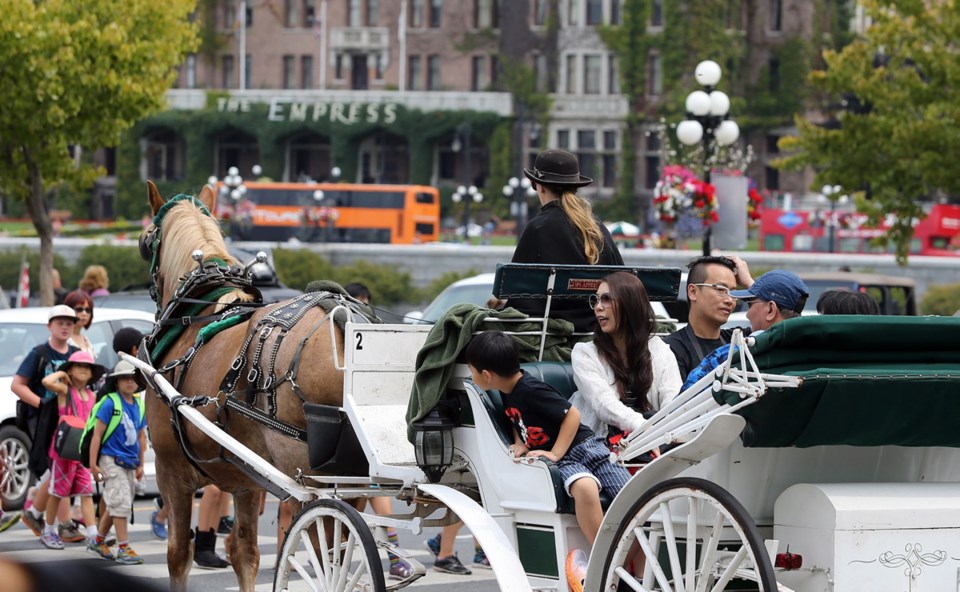Horse-drawn carriages have no place in an urban environment such as downtown Victoria and should be phased out, says Coun. Ben Isitt.
“I don’t think horse-drawn carriage operations are an appropriate use of animals for commercial purposes — essentially for entertainment,” Isitt said while discussing bylaw amendments that would require operators to clearly identify horses and operators.
Isitt said the changes just “scratch the surface” in terms of what’s needed. “These animals need to be in rural areas on farms and not working in a dense urban environment under these conditions, and these palliative measures, I think, aren’t really addressing the real problem.”
Isitt proposed no bylaw amendments in support of his comments.
The bylaw changes, introduced by Coun. Charlayne Thornton-Joe and supported by council, will require that each horse transporting passengers must display an identification number that corresponds with the name, description and health record of the horse that is to be provided to the licensing officer and the SPCA at the beginning of the season.
Thornton-Joe said in cities where horse-drawn carriages have been banned, concern about horses working in extreme weather such as excessive heat has been a factor.
“Veterinarians have said that our weather patterns, the highs and the lows, have not reached that extreme. And the only time they would support and put their name behind [such a restriction] would be for racing horses who are exerting a lot of energy when they are running,” she said.
Councillors also supported changes to the Animal Control Bylaw, including renaming the bylaw the Animal Responsibility Bylaw. The changes will prohibit the sale of dogs, puppies, cats, kittens and rabbits at pet stores — a move that is moot given that no pet stores in the city sell any of those animals.
“Although we don’t have the issue right now, as this table often finds, there’s nothing worse than having to create policy when it’s a need right that second,” Thornton-Joe said.
The ban is aimed at reducing impulse buying and overpopulation of some animals, and to ensure pets are coming from reputable breeders.
Thornton-Joe won support for bylaw amendments patterned after ones enacted in Surrey and Duncan and in a model bylaw prepared by the SPCA.
Changes seek to ensure dogs are not injured while tied up, that dogs not be tied up using choke collars, or with ropes or cords that might choke, and not tied up more than four hours in a 24-hour period.
Owners walking dogs deemed aggressive off their own property will be required to use a leash not longer than a metre, ensure the dog is not running at large, keep the dog muzzled when in an off-leash area and ensure the dog has permanent identification registered with the city.
There are also prohibitions against allowing animals to suffer from hypothermia, dehydration, discomfort or exertion causing unnecessary pain, suffering or injury; teasing, tormenting, beating, kicking or provoking an animal; and training or allowing an animal to fight.
Councillors also supported regulations for keeping urban chickens and bees, specifying a maximum of 12 hens and limiting the number of beehives according to property size.



